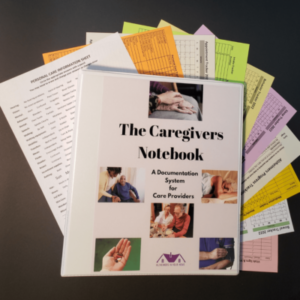Is it Alzheimers Early Stage?

Can you recognize Alzheimers Early Stage? Are you worried about a family member who is having memory problems? The best thing you can do is to learn the warning signs of Alzheimer's Disease. The first stage of this disease usually lasts 2-4 years and the earlier you recognize it and start treatment the longer you can help maintain the memory.
There are many different warning signs for Alzheimers Early Stage. The most recognizable warning sign is the forgetfulness but there are others. Review the following list and see if you recognize any of the these signs in your family member.
The Alzheimer's Association has identified 10 warning signs for Alzheimer's disease.
These signs are:
* Memory loss, such as forgetting recently learned information like names and phone numbers.
* Difficulty performing familiar tasks, such as cooking a meal.
* Problems with language, such as forgetting simple words or substituting unusual words.
* Disorientation as to time and place, such as forgetting where you live on your street.
* Poor or decreased judgment, such as dressing improperly for the weather or giving away large sums of money to strangers.
* Problems with abstract thinking, such as not being able to balance a checkbook or understand what numbers represent.
* Misplacing things, like putting an iron in the freezer or a wristwatch in the sugar bowl.
* Changes in mood or behavior, such as rapid mood swings—from calm to tears to anger—for no apparent reason.
* Changes in personality, such as becoming extremely confused, suspicious, fearful, or dependent on a family member.
* Loss of initiative, such as sleeping all the time, watching television all day, or not wanting to do any usual activities.
You may notice they simply forget what they are doing and move on to another task. An example would be cooking a meal and they may leave the room and not come back. It is also common for them to have good days and bad days. They may not have any problems one day and the next day seem to not be able to remember anything. Alzheimer's disease is a slow process and it may last anywhere from 8 to 20 years.
Time to talk about Alzheimers Early Stage?
If you haven't talked to your family member yet about your concerns,
then it is time to prepare yourself and introduce the subject carefully.
Keep in mind that they are aware of their memory problems and are
probably more worried about it than you are. Express your concerns and
ask if they have noticed any problems with their memory. They may be
very defensive when you approach the subject, but this is a subject
which needs to be addressed. If they are in Alzheimers Early Stage then
they will need to see a doctor to discuss treatment options and you will
also need to look at legal issues.
There are two main
areas for legal issues with Alzheimer's Disease, both of which need to
be addressed in the Alzheimers Early Stage. A Power of Attorney for both
financial and health-care will need to be addressed while the memory is
still intact. I would also recommend discussing Advance Directives if
you have not discussed this before.
An Advance Directive
tells your doctor what kind of care you would like to have if you become
unable to make medical decisions (if you are in a coma, for example).
When I talk to patients about this decision, I usually ask them "if I
were to walk into this room and find you without a heartbeat, would you
want me to try to restart your heart?" If the answer is yes then they
are a "full resuscitate" and if the answer is no, they are a "Do Not Resuscitate". In the medical world a "Do Not Resuscitate" is referred to as a "DNR".
It simply means we let nature take it's course. I am a nurse first and
I believe that we all have our own thoughts on this matter. Everyone
should make sure that someone knows which one they want to be should the
situation ever arise.
Alzheimers Early Stage Home Page Middle Stage Late Stage Home Page
Do you know what stage of Alzheimer's Disease your loved one is in?
Do you know what to watch for next?
Do you have sitters coming in and need to have a better system to help them provide the best care?
Does your loved one have behaviors that you should be tracking?
Do you have all of the information written down you need when you go to your doctor visits to help them understand what needs you may have?
Do you need help keeping track of appointments, medicines, vital signs, weights, meals, bowels, and behaviors?
Dementia - it's more than just memory loss. Are you prepared for what's next?
The ALZLOG App was created to help you recognize what stage your loved one is in and prepare for what is coming next for your loved one.
Come check out my YouTube channel for helpful tips and support on caring for loved ones with dementia. Let's navigate this journey together!


